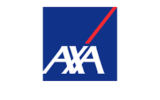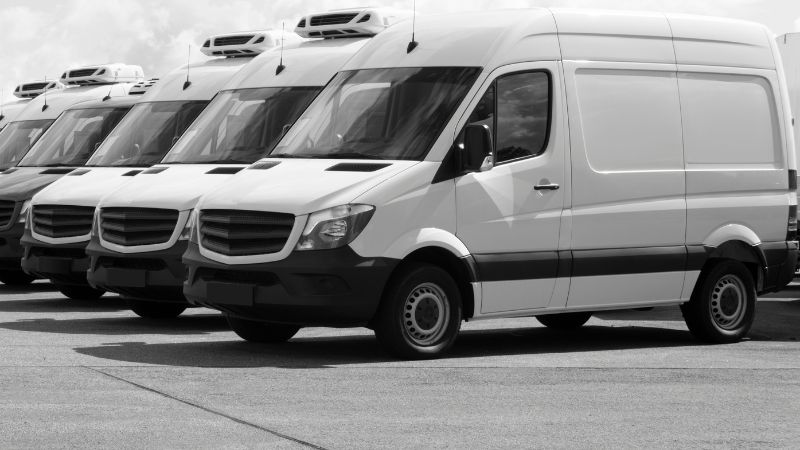Van Insurance For Rented Vehicles
Compare Van Insurance For Rented Vehicles Across The UK Market
Van Insurance
Compare Top UK Van Insurance Quotes!
- FREE Search – Over 60 UK Van Insurers
- One short form to complete
- Tailor your requirements
- Compare multiple providers
- Find a policy to suit your needs!


Van Insurance For Rented Vehicles
Rented vans and other similar vehicles are required throughout our day to lives in variety of different circumstances. In order to address this requirement, there are a number of specialist insurance companies that will provide tailored van insurance quotes to suit commercial or private customers.
Depending upon the size and model of rented vehicles, the price of insurance may vary a great deal, however, the majority of rental companies will include some type of basic van insurance as part of their short term agreement with their customers.
Van insurance for rented vehicles presents a number of distinct advantages over more traditional long term insurance policies. The following are some examples:
-
Van insurance that is agreed upon a short term basis will usually mean that any damage or incident will have no effect on the drivers no claims bonus.
-
This form of insurance can usually be acquired at very short notice and be extended if necessary
If you are considering borrowing a van or similar rented vehicle from a friend on a short term basis, it is strongly recommended that you make sure you are covered by an adequate insurance policy.
It should be remembered that normal van insurance will not usually protect the driver in the event of an accident involving a vehicle rented from a friend. Without the proper van insurance, you could be liable for any damages to the vehicle and you may also lose your no claims bonus in the event of an accident. For this reason, it is always advisable to take out suitable policy before renting a van or similar vehicle.
Van insurance for rented vehicles is typically offered by insurance companies throughout the UK. In most cases, this type of insurance is considered mandatory for anyone wishing to hire a van or similar vehicle on a short term basis. In order to find a policy that is tailored to your individual requirements, it is important to shop around and to compare van insurance policies as much as possible.
Short Summary
- Understand van insurance for rented vehicles to ensure adequate cover.
- Purchase necessary insurance when renting a van to protect against financial losses and legal issues.
- Compare policies, avoid hidden fees, and take advantage of discounts for optimal value on rental vehicle insurance.
Understanding Van Insurance for Rented Vehicles
When renting a van, insurance is crucial to safeguard against potential financial losses.
Most van hire companies include basic insurance in their standard rates, but it’s essential to understand the different types of insurance policies available to ensure adequate cover.
Van insurance policies come in various forms, such as van hire excess insurance, collision damage waiver (CDW), theft protection, and van hire insurance.
These policies can be tailored to your specific needs, whether short-term van insurance for a rental or a long-term arrangement.
Make sure to familiarise yourself with the terms and conditions of your rental agreement to avoid any unpleasant surprises.
Why you need insurance for rented vans
Renting a van without proper insurance can expose you to significant financial risks, especially if you’re involved in an accident or face unexpected circumstances during your rental period.
Some van rental sites might advertise low rates but exclude basic insurance packages in their rental agreement, leading to unforeseen expenses and potential liabilities.
To protect yourself and your wallet, it’s essential to choose a van insurance policy that covers the excess and any additional services not included in the standard rental agreement.
This way, you can have peace of mind knowing that you’re protected against financial losses and potential legal issues arising from your rented van.
Types of van insurance policies
There are several types of van insurance policies available, each offering different levels of cover and protection.
Some examples include:
- Van hire excess insurance: This covers the excess charged by the van rental company in case of an accident or theft.
- Collision Damage Waiver (CDW) insurance: This covers any damages to the rented van resulting from an accident.
- Theft protection insurance: This covers the cost of replacing the hire van in case of theft.
When choosing the right insurance policy for your rented van, it’s essential to consider your specific needs, the duration of the rental, and any additional drivers involved.
This way, you can ensure that you have adequate cover and protection throughout your rental period.
Choosing the Right Van Hire Company
Selecting the right van hire company is crucial to ensuring a smooth rental experience and avoiding any potential issues.
It’s important to research and compare various companies, considering factors such as customer feedback, safety record, and licensing and insurance.
Before committing to a rental agreement, make sure to thoroughly review the terms and conditions, as well as the duration of the rental period and any additional fees or charges that may apply.
This way, you can avoid hidden costs and ensure you get the best deal possible.
You can use our comparison table at the top of this page to compare quotes across the market.
Evaluating van hire companies
When assessing van hire companies, it’s important to consider several criteria, such as the quality of the van, the level of customer service, and the overall experience.
You can research different companies by exploring their websites, reading customer reviews, and seeking recommendations from friends or family members who have rented vans in the past.
Don’t forget to evaluate the company’s safety record and ensure that the company is licensed and insured.
Understanding the rental agreement
Before signing a rental agreement, it’s essential to thoroughly review the terms and conditions to ensure that you understand all aspects of the rental.
This includes the duration of the rental period, any additional fees or charges that may apply, and the type of insurance cover provided.
If you’re uncertain about any of the terms and conditions in the van rental agreement, don’t hesitate to contact the van rental company for clarification.
Make sure to ask questions and confirm any details before signing the agreement, as this can help you avoid any misunderstandings or unexpected charges during your rental period.
Essential Insurance Cover for Rented Vans
To ensure that you’re adequately protected when renting a van, there are three essential insurance cover you should consider: Collision Damage Waiver (CDW), Theft Protection, and Third-Party Liability.
These cover provide a comprehensive protection plan for your rented van, safeguarding you against potential financial losses and legal issues.
Understanding each of these insurance cover is crucial to making an informed decision when renting a van.
Let’s take a closer look at each of these essential cover and their benefits.
Collision Damage Waiver (CDW)
Collision Damage Waiver (CDW) is a form of protection that covers your liability for any damage incurred to the rented vehicle in the event of an accident or collision.
With CDW cover, you can rest assured knowing that you’re protected from the financial strain of repairing or replacing the rental vehicle in the event of an accident.
Obtaining CDW cover is usually straightforward, as most rental car companies offer it as an optional addition to your rental agreement.
Alternatively, you can also purchase CDW cover from a third-party provider. With CDW cover in place, you can enjoy peace of mind during your rental period.
Theft Protection
Theft Protection is another essential insurance cover for rented vans.
It provides cover for the cost of replacing the hire van in the event of theft.
This can be particularly important if you’re renting a van for an extended period or storing valuable items in the vehicle.
Theft Protection is typically offered as an optional extra when you book the vehicle, so be sure to confirm its availability with the rental company before booking.
Third-Party Liability
Third-party liability cover is a crucial aspect of van insurance for rented vehicles.
It covers any legal costs or damages resulting from using a rented vehicle, such as injury or damage to other people or property.
Acquiring Third-Party Liability cover is typically straightforward, as it can be included in a comprehensive van insurance policy.
Make sure to evaluate different policies and understand the cover limits before buying a policy.
Additional Insurance Options for Extra Peace of Mind
In addition to the essential insurance cover mentioned above, there are several other insurance options available for extra peace of mind when renting a van.
These include Personal Accident Insurance (PAI), Breakdown Assistance, and Windscreen Cover.
While these additional insurance options are not mandatory, they can provide further assurance and protection during your rental period.
Let’s explore each of these options in more detail.
Personal Accident Insurance (PAI)
Personal Accident Insurance (PAI) is a valuable insurance option that provides cover for medical expenses and death benefits in the event of an accident.
This cover can be especially beneficial if you’re renting a van for long-distance travel or transporting passengers.
PAI is typically offered as an optional cover when renting a vehicle, so be sure to check with the rental company about its availability.
Breakdown Assistance
Breakdown Assistance is an additional insurance option that provides cover for roadside assistance and towing should a breakdown occur during your rental period.
This cover can be a lifesaver if you’re renting a van for an extended period or travelling in unfamiliar areas.
Breakdown Assistance is usually available from various sources and can be added to your rental agreement as an optional extra.
Windscreen Cover
Windscreen Cover is another optional insurance cover that provides protection for the repair or replacement of the windscreen in case of a crack or chip.
This cover can be particularly useful if you’re renting a van for an extended period or driving in areas with hazardous road conditions.
Windscreen Cover can be added to your rental agreement as an optional extra, so be sure to inquire about its availability with the rental company.
With Windscreen Cover in place, you can enjoy peace of mind knowing that your rented van is protected against potential windscreen damage.
Saving Money on Van Insurance for Rented Vehicles
Saving money on van insurance for rented vehicles doesn’t have to be a challenge.
In this section, we’ll explore various strategies for reducing the cost of your van insurance, ensuring that you get the most value for your money.
Comparing insurance policies
One of the most effective ways to save money on van insurance for rented vehicles is to compare different policies and providers, including motor insurance and vehicle insurance options.
By doing so, you can identify the cover that best suits your needs at the most competitive price.
When evaluating policies, consider factors such as:
- Cover limits
- Deductibles
- Premiums
- Any discounts or special offers that may be available
Avoiding hidden fees
Another crucial strategy for saving money on van insurance for rented vehicles is to avoid hidden fees. These can include:
- Cancellation fees
- Policy adjustment fees
- Set-up fees
- Other miscellaneous charges that may not be apparent at the outset
To avoid hidden fees, make sure to thoroughly review the terms and conditions of your rental agreement and insurance policy and ask questions if anything is unclear.
Taking advantage of discounts
Finally, taking advantage of discounts and special offers can be a great way to save money on van insurance for rented vehicles.
Many companies offer discounts for customers who purchase multiple policies or have good driving records.
To find the best discounts and special offers, research different policies and providers and inquire about any potential discounts or offers that may be available.
Frequently Asked Questions
Do I need insurance on a lease van?
Yes, you need to have a fully comprehensive insurance policy for your leased van in order to cover the full cost of repairs and third-party property in case of an accident.
This policy should include cover for any damage to the van itself, as well as any damage to other people’s property that the van may cause.
It should also include cover for any medical expenses that may be incurred due to an accident.
Does van insurance cover you to drive a car?
If your van insurance includes the “drive other vehicles” clause, you can be covered to drive a car with your existing van insurance policy.
However, if your van insurance does not have this clause, you must take out a separate car insurance policy.
What types of van insurance policies are available for rented vehicles?
Van hire excess, collision damage waiver (CDW), and theft protection insurance are the different types of insurance available for rented vans.
These types of insurance can help protect you from any unexpected costs arising from an accident or theft.
They can also provide peace of mind when renting a van, as you know that you are covered in the event of an accident.
What is a Collision Damage Waiver (CDW)?
Collision Damage Waiver (CDW) is a type of insurance that covers any damage to a rented vehicle caused by an accident or incident.
It is important to note that CDW does not cover any damage caused by theft, vandalism, or other non-accident-related incidents.
Rental car companies usually offer CDW as an optional extra, and it is.
What is Theft Protection?
Theft Protection is an insurance cover that safeguards renters from the costly replacement of a stolen vehicle.










